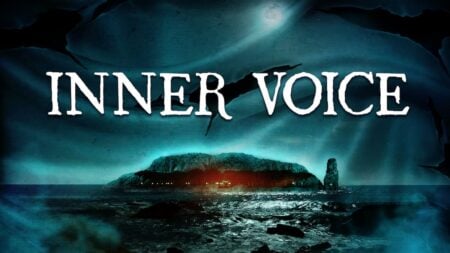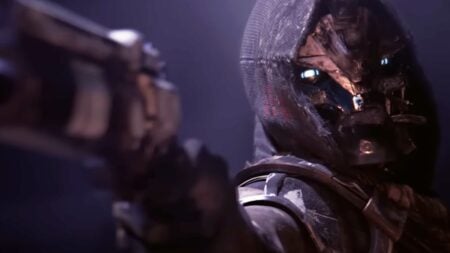Title: Final Fantasy XV
Available On: PS4,
Developer: Square Enix
Publisher: Square Enix
Genre: RPG
Official Site:www.finalfantasyxv.com
Where To Buy: PSN Store,
Few games have had as long a development cycle and as much anticipation as Final Fantasy XV. One of the first screens the player comes to when the game boots up says “For fans and first-timers.” As a first-timer to the series, I wondered if the game would live up to the inevitable hype that surrounded its 10-year development. Unfortunately, I found it not to be as great as it could have been.

Final Fantasy XV, the latest iteration in a series filled with legendary games, places you at the helm of Noctis and his three friends as they make their way across the land of Eos, from Insomnia to Altissia, to unite Noctis in marriage to Lady Lunafreya. Along the way, they are informed that the Empire, a neighboring enemy, ransacked Insomnia and killed Noctis’ father. Noctis and his companions make their way across the land, growing in strength, in order to take the Empire head on.
Noctis’ three friends each represent a familiar character trope. Gladiolus, the brawn, is a pretty buffed guy wielding a massive sword and a deep voice. Ignis, the brain, is much more refined and uses knives for precision strikes. Finally, Prompto, the heart, is the smallest of the group but has the loudest and most energetic personality.
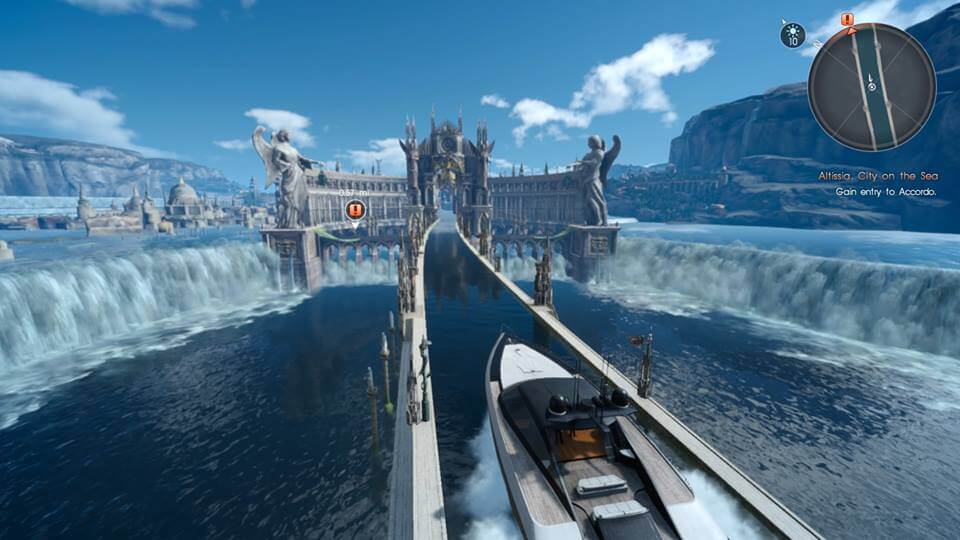
Most of my favorite or least favorite moments in Final Fantasy XV came as a result of these characters. Noctis has a fairly tempered personality, which plays off of the others in both great or terrible ways. When the four are driving in their car, the Regalia, or are having some one-on-one moments when camping, the game captures some fairly realistic and comfortable scenes of true companionship, sometimes like friends and other times like brothers.
Unfortunately, the writing also leads to some extraordinarily strange moments as well. At certain times, something devastating will happen to Noctis. Instead of offering him support, the other characters, Gladiolus especially, will berate him for being upset. This happened numerous times through the story, and each time it did I felt myself lose a connection to the characters. Not until the final chapter of the game did I feel like I actually enjoyed being in my party again, which took a long time to get to.
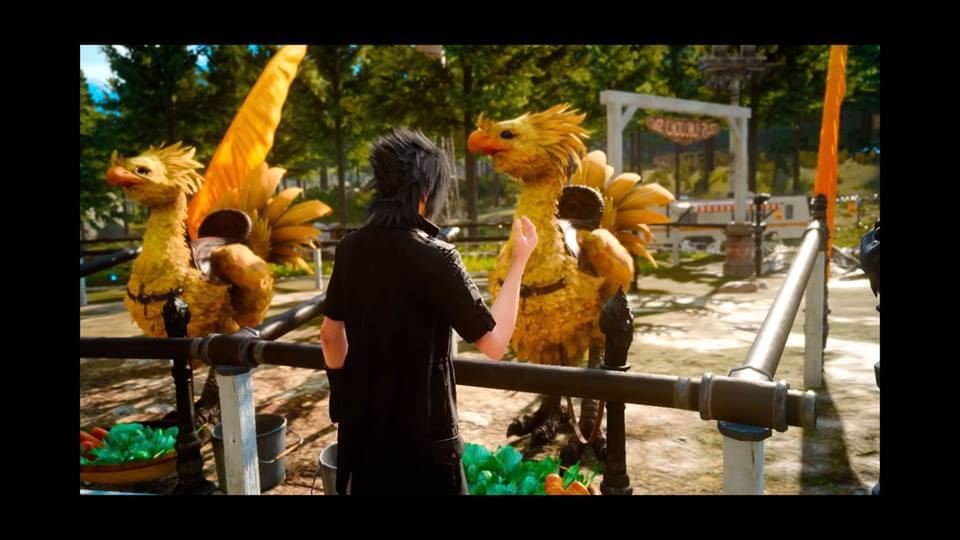
The gameplay itself isn’t very remarkable in any particular area either. The world itself for the majority of the first part of Final Fantasy XV is open world. Each rest stop tends to have a place to fill up the Regalia’s gas tank, a vendor who sells some classic Final Fantasy soundtracks, a restaurant with bounties for killing creatures, and someone to give the guys a quest. As the main story progresses, more of the world opens up and more quests are attainable. In addition to towns, the world also contains a variety of different dungeons, each with powerful enemies and rewards in them.
The sidequests initially are fairly diverse, but after you do about five different ones, you’ll realize that they’re all fairly similar. Most of them entail going to collect retrieve something, maybe fighting a few creatures while you’re there, before returning to turn it in, only to receive another exactly like it in a different area. The dungeons, on the other hand, are actually genuinely awesome. Each feels unique from each other, and while the monsters in each tend to be similar, the methods of getting around and unlocking things is where I found myself having the most fun in the game.

Strangely, in the last few acts of Final Fantasy XV, the player is pulled out of this open world and put instead in a completely linear quest line. Honestly, this section of the game felt extremely different and almost fairly rushed as far as gameplay and story go. The only benefit, without giving any spoilers away, is that some major character development happens in this section that actually makes the story feel like a story.
I also found myself having a love/hate relationship with the combat system. While it was simple and comfortable enough for my to get a feel for it quickly, it relies on an antiquated system that the games industry has moved away from since the Playstation 2 and early Playstation 3 era. Instead of having a dodge system that actually worked most of the time, the combat system loads the player with damage, and constantly makes them used potion after potion until the fight is over. Most battles I found myself in were won based more off of how stocked on healing elements I was rather than on me actually mastering the broken system.
In addition to this, the camera during fight sequences was abysmal. Every fight, and I do mean every fight, was half a fight with monsters and half a fight to find an angle that didn’t have me looking at a something in the foreground that blocked the entire screen. And even despite all of these flaws, I didn’t die a single time. I can understand making the game accessible, but even when I was extremely outmatched or outranked, I never really even came that close to dying and having to reload.
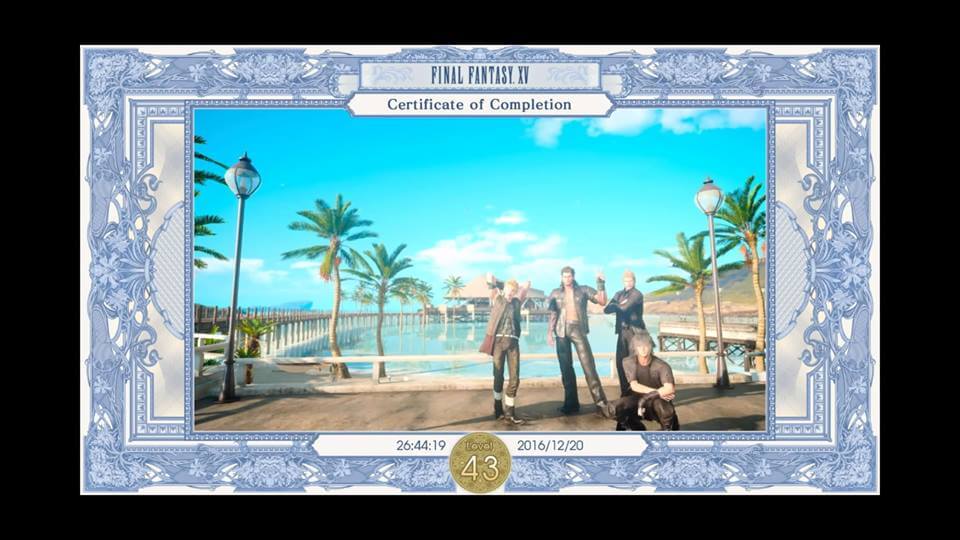
This synopsis of the story mentioned earlier is only the beginning of a long, semi-convoluted journey. The game itself doesn’t explain well who exactly Noctis is, where his companions come from, or what exactly is going on in the background. Instead, the player is expected to delve into the lore that is provided in extra materials, such as an animated film Kingsglaive: Final Fantasy XV.
My issue with this is that games such as Overwatch or Destiny are critiqued for separating their lore from the actual game, and for good reason. The lack of this material made it much more difficult to feel like I had a grasp of what was going on. Even 20 plus hours in, I found myself becoming confused as to why certain parties such as the Empire were behaving in certain ways.
Fortunately, there were things the game did well. The cinematic cutscenes are astounding achievements in art direction for video games. Even the in-game scenes that weren’t part of the dialogue (because those looked like they were from last generation) looked fair. The world itself is full of callbacks to previous games and characters, whether it’s pictures from previous games or Prompto singing the victory theme every so often.
Going in, I truly wanted to like Final Fantasy XV. I hoped that the extended and laborious development cycle would end with a game that felt like it had been worked on for 10 years. And sometimes, it really did. But more often than not, the words that I felt best suited the game were repetitive, antiquated, and boring.
- Gameplay: Easy to pick up; not very modern-thinking
- Graphics: Beautiful and consistent
- Sound: Very well done; Nostalgic
- Presentation: Convoluted story, sometimes confusing character dynamics, and a gorgeous, repetitive world
[review]


